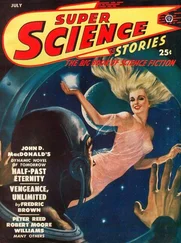Back on the highway, I turned toward town. I had to go down into town to catch the highway that leads north into the hills of the lake country. There seemed to be an exceptional number of police around for an early Sunday afternoon. I drove over the bridge in heavy traffic headed north. A mile and a half north of the river I passed the Warren Tube and Cylinder Division of Consolidated Pneumatic Products, Incorporated — my employer. The place is six years old, cubical, landscaped and sleekly efficient. I rode by my place of employment with her body in the trunk compartment.
I have never driven so carefully. It was like the extra care you seem to use when you cross a street while carrying a batch of expensive phonograph records. I had visions of what could happen if somebody smacked into me just hard enough to spring the trunk open. The more care I used, the more narrow squeaks I had. The road was crowded with damn fools, all of them in a hurry.
Once in the hills, I was in an area where many small roads branched off to small lakes. I took one of the less traveled ones. It was black narrow asphalt, lumpy and extensively patched. It climbed over steep crests and fell into crooked valleys. I had met no car as yet and I looked frantically for a turnoff. I braked hard when I saw an old lumber road, a faint trace leading off to the left. Leaves and branches scraped the sides of the Merc as I turned into it. I drove about three hundred feet. I was well out of sight of the road.
I got out and listened to the silence. A bird sang and a fly circled my head with a self-important buzzing. I decided I had best not think about flies at all. I heard a car motor. It took a long time to come close, but after it went by the sound faded quickly. I saw no glimpse of it between the spring leaves. I could hear water running somewhere nearby. The woods had a spring smell of dampness.
I knew I had to get it over with. I opened the trunk, pulled the tarp up around her and lifted her out. I dragged the tarp over to the edge of a small drop, let go of two corners, holding the other two, and rolled her out. She tumbled down over the edge, rolled over three times and came to rest with her back to me, supported by a small pine tree. A frozen juice can I had missed rolled out with her and went on down the slope. I went down and got it. There could be a fingerprint on it. I tossed it into the back of the car. Then I went and looked over the edge again. I could see no clear footprint. That made me think of tire prints; I remembered reading that they could identify tire prints. I looked and found two places where they were clear. I could avoid those places on the way out. I got a stick and gouged the prints out.
Next I folded the tarp as small as I could get it. I walked deeper into the woods and found the rotten stub of a birch tree with a big hole in the side of it, about seven feet off the ground. I stuffed the tarp down in there and it didn’t show at all. I went back and looked at her again. She looked awfully small, like a child dressed up in woman’s clothing.
The pine shadows were heavy, and her white skirt had an almost luminous look. Twigs and bits of leaf clung to her skirt where she had rolled over and over until the tree caught her across the middle. She was draped across the tree, white skirt pulled tight across dead hips.
I stood and looked down at her, wanting to leave, but immobilized, caught up in recent memory. It had been an evening when, as usual, we had been out with Dodd and Nancy. Dodd had been surly and Mary Olan had been overly gay, as though taunting the three of us. After Dodd and Nancy went home, Mary had wanted to go on. We hit a lot of little highway places. As she became drunk, she grew more affectionate. It was clear that she was annoyed at Dodd. I felt that I might become an instrument of her revenge, and I was willing.
We stopped at a grubby, forlorn little motel forty miles from town, and the fat clerk, with insinuating sneer, asked for ten dollars. Once we were in the shabby room, she lay across the bed face down and cried for a long time. She wouldn’t tell me why she was crying. When I asked her if she wanted to leave, she didn’t answer. When I tried to kiss her, she pushed me away. I sat and smoked and waited her out.
She dried her eyes, cheered up, kissed me lightly and went into the bathroom. I heard the shower running for a long time, and then I heard the sound of a fall. I went in and found her on the floor, half in and half out of the shower. She had hit her head. I carried her, utterly limp, back to the bed.
Her body was brown, smooth, flawless. Her pulse felt strong and slow. I brought towels and dried her. The mark on her forehead was minor, and I wondered if she was faking. I took her in my arms, but she was completely without response. I suspected her of faking, and was tempted to call her bluff by possessing her. Absolute helplessness brings out an atavistic streak in anyone. Yet there was the chance that she had actually passed out, or that this was some sort of hysterical seizure.
And, delectable as was her body, helpless as she was, I could not be that cold-blooded about it. I found her crumpled clothing in the bathroom and hung it up. After I had covered her, I got into the other bed.
Dawn was grey when she shook me awake. She was dressed, impatient to leave, and in a mood of controlled fury. She did not speak on the way back. The sun was coming out as I left her near the Pryor driveway. She walked toward the house without speaking, without looking back. The next time I saw her she acted as though it had never happened. I never got that close to her again.
Now, standing there in the wood’s gloom, looking down the slope at her slack body, I thought of that other time. It was a chill body now, not steamy warm from the shower. I saw the shape of her hips, the roundness of her arms, the smooth tan of her shoulders. Never again, for anyone, would there be the avid response, the controlled silken surgings of that body, the wide mouth warm. It was death and it was waste. I thought of myself and of the incalculable date of my own death. I shivered and turned away from her and drove away. I was troubled and frightened. And sad.
Back on the main highway at fifty miles an hour, each second took me almost seventy-five feet further away from the body of Mary Olan. I told myself I felt fine. I told myself I’d functioned superbly. I told myself I was a hell of a fellow indeed. Actually, I felt shamed and rotten and sick inside.
I stopped at a roadside place where the siding was made of neat perfect artificial logs. I went in and sat at the counter, looked at the spotted menu and smelled the short order grease. My stomach closed into a knot. I ordered hot black coffee.
I kept seeing her. Last night she had walked in front of me, her compact, muscular little rump jaunty under the hang and swing of the white skirt, black hair bounding against the nape of her neck. Now there was a pine tree across her middle, and the first person to walk in there would see the white skirt and the brown legs on the slope of the hill — something used up and thrown away.
Her death had not been dignified, stowed in my closet, but I felt that I had added a further indignity. I had in some macabre way allied myself with her murderer. Between the two of us we had despoiled Mary Olan.
The conversation with the police — the phone call I could have made — no longer sounded so idiotic. Certainly they would have given me a rough time, but it wouldn’t have lasted long. Where was my motive? They had their lab methods, their trained technicians. Sooner or later they would have come up with something. It was unlikely that someone could kill her and put her in my closet without leaving some important clue.
Slowly I began to realize that while I had thought that I was being sane, logical and efficient, I had actually been in a state of emotional shock. I hadn’t been thinking well at all. I had stupidly managed to destroy any possible clue. I had gotten myself out of a jam — maybe. And had given the actual murderer a priceless bonus. When the body was found, the murderer might very well be able to prove that he couldn’t possibly have carted it twenty-five miles north into the woods. He was going to be highly pleased with my cooperation. Little by little the full knowledge of my own stupidity came to me. I had reacted from fright. Maybe what I had done took me out of the play, and maybe it didn’t. If it didn’t take me out, if I had made some mistake, overlooked something, I had destroyed whatever would prove my own innocence.
Читать дальше
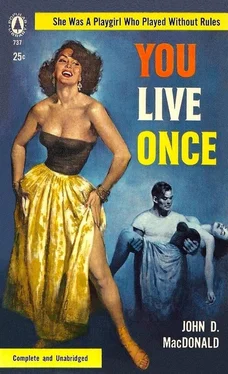
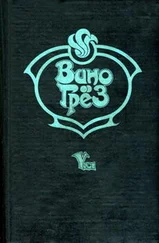
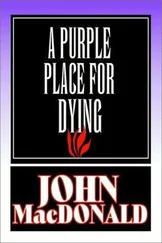
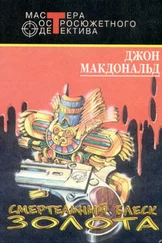
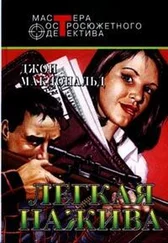
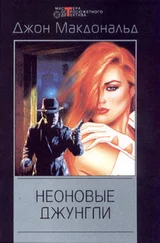
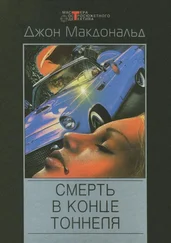
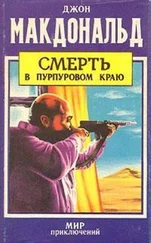
![Джон Макдональд - Wine of the Dreamers [= Planet of the Dreamers]](/books/430039/dzhon-makdonald-wine-of-the-dreamers-planet-of-thumb.webp)
![Джон Макдональд - Finding Anne Farley [= Ring My Love with Diamonds]](/books/430180/dzhon-makdonald-finding-anne-farley-ring-my-lov-thumb.webp)

